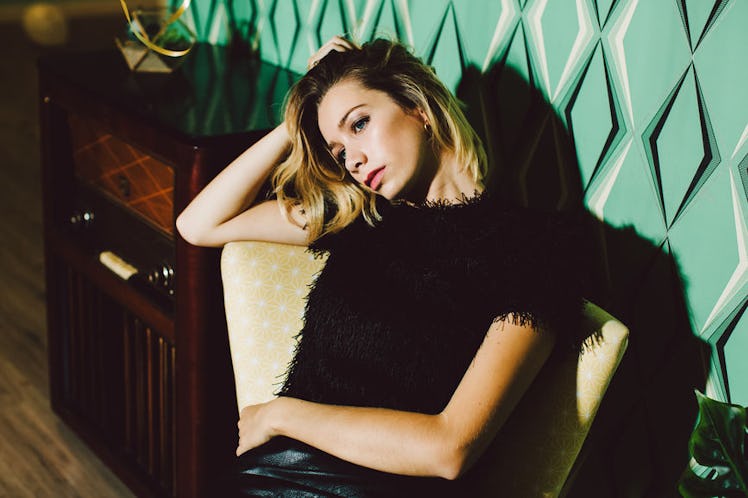
If You Ever Get Anxiety During A Hangover, Science Says You're Not The Only One
A bad hangover can make you feel like you're legitimately going to die — a very slow, very painful death, might I add. (Me? Dramatic?) It can also, unfortunately, conjure up a whole lot of anxiety that just amplifies all of the terrible feelings you've already got going on in your body. Actually though, hangover anxiety is apparently a real thing, according to the results of a new study, so if you've ever experienced it, science says you're not the only one.
The new study, which has been published in the academic journal Personality and Individual Differences, found that "highly shy people" may be more likely to experience anxiety when they're hungover, according to a press release from the University of Exeter in the UK. Researchers from the University of College London and the University of Exeter recruited 97 social drinkers with varying levels of shyness, who then had about six drinks to see how it affected their anxiety levels, the study explains. BTW, if you're wondering what "shyness" is supposed to mean here, the study says you can consider it "a subclinical analogue" of social anxiety, which is "related to alcohol use disorder." In other words, being shy and experiencing anxiety are linked in some way, I guess? You don't say. Oh, and apparently social anxiety and drinking are related. OK, science.
Interestingly enough, while the shyer participants were inebriated during the study, their anxiety decreased, according to the results. However, the next day while they were hungover, the findings suggested that the shy participants were feeling a notable increase in their anxiety (or what the researchers referred to as "hangxiety").
“We know that many people drink to ease anxiety felt in social situations, but this research suggests that this might have rebound consequences the next day, with more shy individuals more likely to experience this, sometimes debilitating, aspect of hangover," researcher Professor Celia Morgan, of the University of Exeter, said in a statement for the study's press release.
Dr. Gail Saltz, an associate professor of psychiatry at the New York Presbyterian Hospital, Weill-Cornell Medical College (who was not involved in the UK study), agrees: "Unfortunately many people, especially teens and 20-somethings, drink alcohol to diminish the thoughts and physical symptoms of social anxiety," she tells Elite Daily over email. "In the moment, indeed, the alcohol may make them less anxious, but as alcohol levels come down, the body experiences withdrawal from alcohol, and all those terrible feelings of a hangover are withdrawal."
According to Dr. Saltz, with the withdrawal can come anxiety, and then it's basically just a feedback loop of anxiety on anxiety on hungoverness on more anxiety, and this latest study has deemed the overall feeling "hangxiety."
"Alcohol withdrawal physiologically causes an increase in heart rate, a symptom which also makes a person feel anxious, because it is also a symptom of high anxiety," Dr. Saltz explains. "The same is true for being tremulous [aka shaky]. Also the sick feeling of a hangover can make anyone [who is] anxious feel more anxious."
I hate to tell you this, but according to Dr. Brian Isaacson, associate chairman for the Department of Psychiatry at AtlantiCare, there's no magic cure for hangover-related anxiety. "My recommendation would be to use alcohol in moderation and avoid the hangover in the first place," Dr. Isaacson tells Elite Daily. "This is especially important for people who are prone to anxiety disorders." He also notes that if someone has a pre-existing anxiety disorder, it is important to get treatment either via medications (such as SSRIs), therapy, or a combination of both.
So, if you ever find yourself feeling completely out of it in more ways than one when you're nursing a hangover, drink some water, stretch a little, drink more water, and just laze around — and eat something greasy.